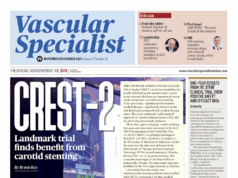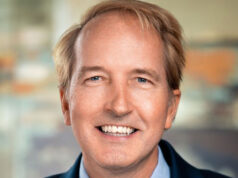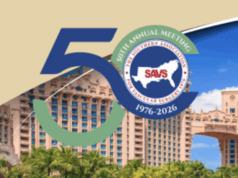Nicolas Mouawad has always had an interest in the relationship between government and health care. To get a closer look at how lobbying influences legislation, Dr. Mouawad applied for and received the SVS Vascular Surgery Trainee Health Policy Scholarship in 2013.
“One of the reasons I was interested in the scholarship is that as vascular surgeons, the government rules and laws encompass our largest population – patients on Medicare,” he said. “We need to be involved in the delivery, reimbursement and management models of health care for this reason. It is the physicians working in the field that can best streamline health care delivery and ultimately lower health care costs.”
During his visit to Washington, Dr. Mouawad met and visited the offices of Representative Steve Stivers (R-OH), Senator Tim Brown (D-OH), Representative Bruce Braley (D-IA), Representative David Loebsack (D-IA), Senator Chuck Grassley (R-IA), and Senator Tom Harkin (D-IA).
“One of the most common questions I got during the Capitol Hill visits was what does a vascular surgeon do?” Dr. Mouawad said. “Most non-medical personnel think that cardiac surgeons or cardiologists manage the blood vessels. They did not know that there are highly-trained specialist surgeons, vascular surgeons, that deal with vascular diseases.”
Among the topics discussed with legislators were the Medicare Sustained Growth Rate (SGR), the proposed annual updates, value-based performance payment programs, encouragement of alternative payment model (APM) participation, and care for individuals with complex chronic needs.
“The bicameral bipartisan position to repeal the SGR and adopt alternative payment methods in an effort to improve quality and value in health care was a key component of the meetings,” he said. “With the repeal of the SGR, annual updates of zero percent for the next 10 years have been proposed. As a senior vascular surgery fellow, this has profound implications for myself and others who are leaving training and about to go into the ‘real world.’ I expressed that these uncertainties pose concerns for employment practices, noting that it is estimated that this proposal could result in a cumulative gap of approximately 45 percent between Medicare payments and the actual cost of treating patients. In order to align payment for health care services, SVS has recommended harmonizing physician payment updates with hospital updates – these are annual market based updates that factor current economic considerations and inflation.”
Dr. Mouawad explained that vascular surgeons manage patients with complex chronic care conditions. “I told the legislators that we develop a rapport with our patients whom we see, follow, and survey for life,” he said. “This longitudinal role in patient care is not factored into the current model. We are, in fact, the primary care providers of patients with atherosclerotic disease on a chronic level and lead their care during acute conditions.”
Dr. Mouawad expressed his appreciation to SVS for the award.
“It is imperative that we become pro-active for our future as a specialty, for our future as physicians, but most importantly, for the future of our patients – of whom only we, as vascular surgeons, can provide a comprehensive medical, interventional, and surgical management plan by virtue of our training and experience,” he said.
Dr. Mouawad is the senior vascular surgery fellow in the Division of Vascular Diseases and Surgery at the Ohio State University Wexner Medical Center in Columbus.













